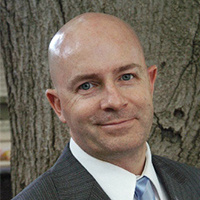 Murphy Felony Lawyers, Idaho
Murphy Felony Lawyers, Idaho
Not enough matches for Murphy Felony lawyer.
Below are all Murphy Criminal lawyers.
Sponsored Lawyers
1-10 of 17 matches
Criminal, Divorce & Family Law, DUI-DWI, Child Custody, Divorce
Ray has been practicing in Idaho since 1989. After attending the United States Military Academy at West Point in 1970, he graduated with his BA in Philosophy with highest honor from DePaul University in Chicago, received the Arthur J. Schmitt Fellowship and attended graduate school. He received his Juris Doctor with honor from the DePaul University College of Law in 1982. Ray began his law career in Chicago, clerking for the Chief Judge of the Cook County Law Division and practicing at top-flight litigation firms, also serving as the Sauk Village, IL Fair Housing Administrator and receiving the Mayor's Award for mentoring moot court law students. Ray moved to Idaho in 1989 and began his private practice. He has a long-standing independent practice and was a partner in Martin, Chapman & Schild in Boise. Ray has worked alongside Dennis Sallaz extensively over the years, becoming a partner in the firm in 2014. Ray has been listed in Who's Who in American Law and the Martindale-Hubbel Register of Pre-eminent Lawyers, co-hosted a Treasure Valley legal talk show, was for several years the Legal Columnist for the Idaho Business Review, has taught several Continuing Legal education courses and was published in the Idaho State Bar's Advocate magazine. Ray has an extensive and varied legal and litigation background, spanning divorce, custody and family law, criminal defense, corporations and LLC's, wills, estates and probate, guardianship, contracts, land use and planning, real estate, collections, administrative law, personal injury, fraud, insurance claims and general civil litigation, lawsuits and appeals. Ray co-authored the appellate brief in Bewley v. Bewley, and successfully appealed before the Idaho Supreme Court in Kawai v. Longstreet. Ray is licensed before the Idaho State Courts, the U.S. District Courts of Idaho and the Northern District of Illinois, the U.S. Circuit Courts of Appeals for the 7th and 9th Circuits and the U.S. Supreme Court. He maintains his Illinois license on inactive status relating to Illinois State Courts. Ray's organization memberships have included Rotary Club, Oriental Lodge #60, AFAAM and El Korah Shrine, having been Temple Attorney and liaison to the Shriner's Children's Hospital.
(more)Accident & Injury, Criminal, Employment, Business
Joseph C. Miller is a lawyer, but is a husband and father first. Joe is married to the most wonderful woman in the world. In fact, his wife, Shelly, works with him as the office receptionist and legal assistant. They have five beautiful and intelligent daughters, ages 21 to 15. They love to do things as a family, especially hiking, rollerblading, camping, and boating. His hobbies include reading, working around the house, snowboarding, waterskiing, and spending time with his wife and kids. They love movies and music and all things creative and artistic. Joe is an Idaho native, born in Coeur d’Alene, Idaho, and raised in Boise. He attended Boise State University where he and Shelly met. He earned a Bachelor of Arts degree at Boise State and was inducted into the Golden Key International Honor Society. In 2003, he enrolled at the University of Idaho College of Law and received his Juris Doctorate in 2006. In law school, he was on the Mock Trial Team for two years and was awarded the title of Best Advocate in spring, 2006. He was elected President of Board of Student Advocates and the Delta Theta Phi Legal Fraternity in the spring of 2005. Joe has over eighteen years of experience in the legal field. Having spent the majority of his life in Boise, he is dedicated to helping the Boise community. He is also fluent in Spanish and has helped dozens of Latino clients with a variety of legal issues and is committed to helping the local Hispanic community. Joe is an experienced litigation attorney in the fields of criminal defense and personal injury. He has extensive courtroom and trial experience and has won several victories for his clients. He is licensed in both the Idaho State and Federal District courts and has represented clients in nearly all of the counties in southwest Idaho, as well as in Bannock and Caribou Counties in southeast Idaho. Joe has been an active member of both the Idaho Trial Lawyers Association (ITLA) and the Idaho Association of Criminal Defense Lawyers (IdACDL) since opening his practice in 2006. In the fall of 2008, he accepted an invitation to serve as a member of the Publications Committee of ITLA, and published case law summaries in numerous editions of the ITLA Journal. In the fall of 2009, he accepted an invitation to serve on the ITLA Board of Directors as co-chair of the Emerging Leaders Section. In early 2010, Joe was selected to join a Rotary International Group Study Exchange Team from Idaho District 5400. He participated in a 30-day cultural and peace exchange to southern Brazil where he toured several local Rotary service projects, made presentations on Idaho Rotary service projects, and became conversational in Portuguese. Joe has twice been invited to present a criminal case update at the annual Fourth District Bar Association Spring Case Review. Joe is an Eagle Scout and an active member of his LDS ward.
(more)Estate, Trusts, Divorce & Family Law, DUI-DWI
Frances Kershisnik is a practicing lawyer in the state of Idaho who handles Estate and Divorce and Family Law matters.
(more)Divorce & Family Law, Estate, DUI-DWI
Patrick C. Kershisnik is a practicing lawyer in the state of Idaho handling Estate and Divorce and Family Law Matters.
(more)Criminal, Felony, Misdemeanor, DUI-DWI, White Collar Crime
For more than 28 years, the Cox Law Firm has provided exemplary legal representation in all types of criminal defense matters in the Boise, Idaho area. We serve primarily Ada County with service in all neighboring counties (Canyon,Valley,Elmore,Payette,Blaine & Washington counties). Our Boise criminal defense attorneys will do everything to help make sure that your rights are protected. Our job is to fight on your behalf if you’ve been charged with a crime and your freedom is at stake. We handle all serious Felonies and Misdemeanors including, Sex Offenses, Domestic Battery, Attempted Strangulation, Drug Trafficking, Aggravated Battery/Assault, DUI, Grand Theft. We see as our ultimate responsibility, to you the client, is to provide every possible option available to you as we navigate the charges against you. We take pride in our willingness to take a clients case to a jury trial if that is the option you choose as your defense. The firm's attorney's have taken over 300 cases to jury trial with proven success.
(more)








